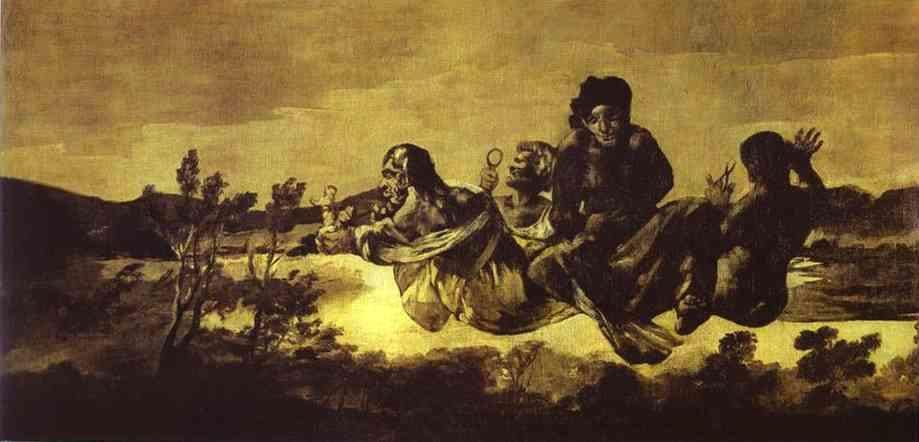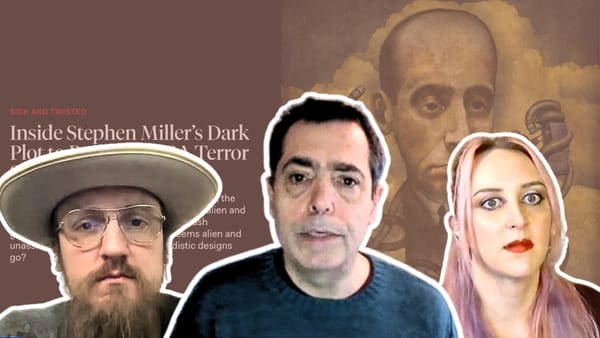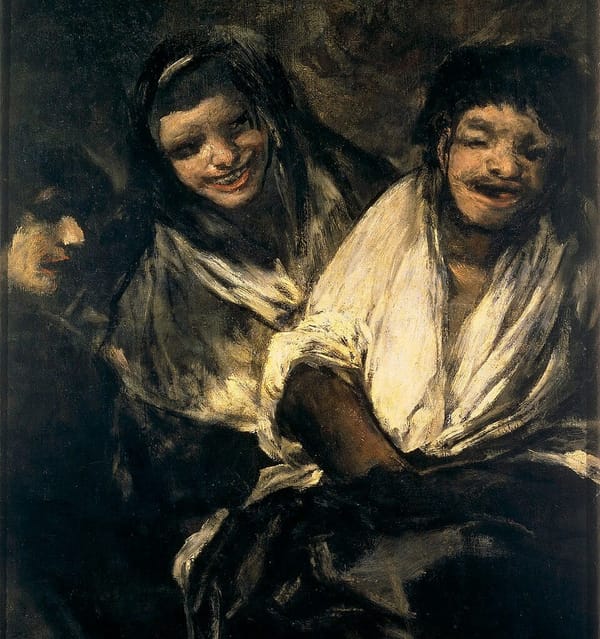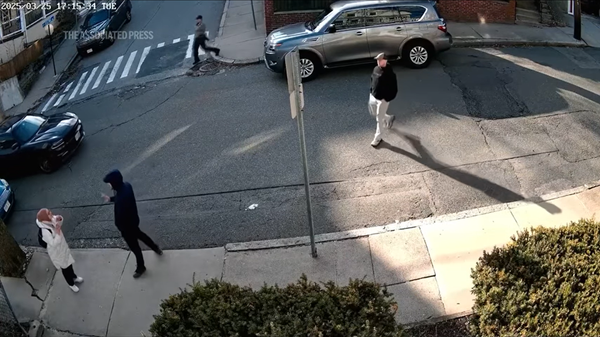The Last Enemy Is Death: Prophetic Visions, AI Slop, and How the Politics of Immortality Could Shape Our Future
How mystics and transhumanists force the dead to speak on behalf of their politics.

14 Since the children have flesh and blood, he too shared in their humanity so that by his death he might break the power of him who holds the power of death—that is, the devil— 15 and free those who all their lives were held in slavery by their fear of death.
-Hebrews Chapter 2, verses 14-15, New International Version
The growing mysticism of MAGA has been a running concern among many political observers for years now. It’s found expression in specific charismatic Christian theologies, viral conspiracy theories like QAnon, and more esoteric New Age thinking. What unites a lot of these attitudes is a tendency to treat the MAGA cause as one that transcends petty, earthly concerns and whose leaders are not bound by finite, mortal limitations.
In the aftermath of Charlie Kirk’s death, his image and voice have been manipulated in A.I. videos, people have claimed to speak with his spirit, and still others have recounted otherworldly encounters brought about by his murder. Whether it is through God dreams, uncanny A.I. fabrications, or prophetic visions, many on the MAGA right present themselves as speaking to and for the dead and the supernatural world. While this is, in part, in line with a time-tested American tradition of spiritualism and mysticism, it also heightens the danger of the present moment. In this case, I’m not attacking spiritual beliefs within American evangelicalism in general. It’s the political implications that most concern me.
Here, I want to lay out how a politics of immortality—driven by both the older traditions of spiritual prophecy and visions and the new power of A.I.—turns heroes of the MAGA movement into eternal forces. It tears the curtain and reaches into the ethereal to reanimate the dead for the MAGA cause. It’s a dynamic that makes the legacies of “martyrs” like Charlie Kirk much more complicated than contested memories and that could easily power Trumpism long after the man himself is gone.
Signs and portents
Last week, Candace Owens announced on her show that she had been visited by Charlie Kirk in a dream:
I similarly, like I just said, had a vivid dream this weekend and Charlie came to me and he told me that he was betrayed. And so for me, you don't have to believe that, but I do believe that, and it was the immediate sense I got, actually. And I don't know who exactly it is that betrayed him, but I also felt in the dream that it is soon going to be revealed. That it's actually inevitable that it's going to be revealed.
Owens has made clear that she believes Israel and pro-Israeli forces were behind Kirk’s killing, an unsurprising but nevertheless dangerous assertion from a noted antisemite. What matters more here is the use of Charlie after his death to continue pushing a political agenda—not through his past statements or legacy but through new, freshly revealed words from Charlie himself.
By now, a lot has been written about the charismatic teachings of the New Apostolic Reformation (NAR), a movement that takes spiritual warfare in politics deadly seriously. But Owens is not directly aligned with the NAR. Rather, her Kirk dream speaks to the more generalized acceptance of spiritualist and mystical thinking across MAGA and the utility of this disposition for making the dead into active mouthpieces for a cause.
Owens is not the only one who has claimed to experience visions in the wake of Kirk’s death. Kim Robinson of Heaven Is Fun told fellow Christian media figure Kelsey O’Malley that “The Lord showed me Charlie in Heaven…I saw Charlie this morning riding on a horse with Jesus, and Jesus has given him like a horse ranch.”
Posting to his nearly three million followers outside of Kirk’s memorial in Phoenix, conservative activist and Newsmax host David J. Harris, Jr. claimed another such vision:
I had this flash in an instant. I don’t know if this happened, this is what I saw. This is what I feel like this is what God gave me. In an instant, I saw Charlie speaking to thousands of people, as he was. And then immediately, he was right with Jesus. And the look on his face was kind of dumbfounded, like ‘what? Why am I here? What’s going on?’ And then it hit him, or he realized what happened, and then he immediately thought about Erika and his babies and was just so sad and so overcome with sorrow to not be with them. And then Jesus showed him, not only that Erika and his babies would be taken care of for the rest of their lives…but he showed Charlie what Charlie’s blood as a martyr was going to do for the country and the world. And the look on Charlie’s face changed, and he was humbled and he was honored…
And Kirk’s death appears to have inspired a number of other religious experiences. Pastor Mike Signorelli, appearing on Sid Roth’s It’s Supernatural podcast, said that God had warned him in the days before Kirk’s assassination that there was going to be “a national tragedy” and that this would be “the turning point.” Speaking to his congregation in what was labeled “a prophetic message,” Signorelli declared “There’s gonna be salvations in every direction if we [the church] choose not to divide in an hour like this.”
In an Instagram video captioned “Pastor Mark Driscoll’s Prophetic Vision of Charlie Kirk,” Mark Driscoll, the former pastor of Mars Hill Church, the notoriously misogynistic and anti-LGBTQ religious leader said
I saw Charlie ascend into the sky like a magnet, and I saw a bunch of pieces of metal gathering and being collected up under that magnet. And I pray that that is a generation that experiences revival and that is brought together by the death and martyrdom of our brother and my friend Charlie Kirk.
All of this amounts to using Charlie Kirk and the idea that he is still alive in heaven as a means of inserting him back into politics as an active source of inspiration and meaning. Kirk himself cannot speak, cannot make meaning for us or anyone else out of his own death. But these interlocutors attempt to do just that. If Charlie has eternal life, and some are blessed by God to see and commune with him, then he can be an infinite source of continued content creation going into the future. Some, however, are taking it even further, using new technology to bring Charlie to the masses.
The gift of artificial life
But in 2025, it’s possible to hear the dead speak without any divine intervention. Numerous churches have played A.I. videos of Kirk, complete with an artificial voice, saying things he never said in life.
As Kelly Dearmore reported for the Dallas Observer:
On Sunday, Sept. 14, Prestonwood Baptist Church, the giant conservative enclave in Plano, got downright creepy during one of its morning services. Lead pastor Jack Graham, a longtime, vocal supporter of President Donald Trump, called Kirk "a martyr" before adding, "I want you to hear what Charlie is saying regarding what happened to him earlier this week."
As an image Kirk's face and an American flag appeared on large video screens, an Al version of Kirk's voice started by saying, "First, I want you to know that I am fine, not because my body is fine, but because my soul is secure in Christ.
Death is not the end. It's a promotion.
Don't waste one second mourning me," the AI Kirk said in front of a packed, multi-level auditorium. "I knew the risks of standing up in this cultural moment, and I'd do it all over again."
The nearly one-minute clip ends with the fake Kirk saying, "Remember this, America is worth it. Free speech is worth it. Fighting for the unborn, for families, for sanity in a culture gone mad, it is all worth it. So, dry your tears, pick up your cross and get back in the fight. Do it with joy, do it with strength and never ever let evil think it won."
This is striking. The A.I. of Kirk, clearly and obviously not Charlie Kirk himself, is presented not as speaking for Kirk but as Kirk speaking himself. The intent might be spiritual revelation but the effect is something like necromancy mixed with a carnival act.
The same video was played at other churches, including Dream City Church in Phoenix, Arizona. There, MAGA-aligned pastor Luke Barnett remarked on the “spiritual war” unfolding in America.
A.I. images of Kirk in heaven next to figures like Pope Francis, Abraham Lincoln, and, of course, Jesus Christ are everywhere across platforms like X and Facebook.
This use of artificial intelligence to curate beyond-the-grave experiences dovetails with the tech world’s secular preoccupation with immortality. For some, A.I. and advancements in data storage don’t just offer a way of communing with the dead but of preserving a person’s essence.
In an interview with Raluca Matei for Sunrise Geek, Dan Thomson, CEO of A.I. company Sensay, laid out his vision for how these technologies can enable a form of eternal life. Thomson’s company works specifically on the creation of “digital clones.” As he explained it to Matei, Sensay is building “AI replicas that don't just mimic responses, but actually capture someone's decision-making patterns, their wisdom, their personality.”
Thomson is a true believer, having self-published a short book on the topic: Immortality in a Digital Age: How we can live forever as digital copies of ourselves, and the benefits and issues that may come with it. It’s a mouthful, even if it only clocks in at 97 pages. But he admits that the dream of A.I.-generated eternal life is still unrealized:
Right now, we can preserve someone's expertise, communication style, and problem-solving patterns.
That's already revolutionary for businesses and legacy preservation…True digital immortality-capturing emotions, creativity, intuition-is still 10 to 15 years away.
But if Thomson is too obscure and small a fish for you, consider that Elon Musk claimed back in 2022 that he’d uploaded his brain to the cloud. He has also stated his belief that humans could someday “download” themselves—their memories and distinct characters—into new bodies.
What A.I. and digital technologies currently offer isn’t immortality or reincarnation. It isn’t even truth. But it is one of the most powerful propaganda tools we have ever seen.
The ability to replicate the look and feel of a person, while it hardly brings them back from the dead, can be used to create confusion over whether the things their artificial version is saying and doing were really said and done by the living, breathing person in question. As A.I. advances, we should be concerned that this will become an increasingly difficult distinction to make. And the claim that an A.I. image and voice somehow represent a continuation of a deceased person’s thoughts and feelings is a dangerous form of techno-mysticism.
In perpetuity
Tech oligarchs and authoritarians around the world are eager to find ways to prolong their lives, preferably in perpetuity. Peter Thiel, Jeff Bezos, and Sam Altman have all put parts of their considerable fortunes behind life-extension research. Bryan Johnson has dedicated himself to a lifelong quest for immortality through dietary experimentation, peculiar healthcare regimens, and, of course, A.I. research. Vladimir Putin has washed himself in deer blood.
Yet humanity remains mortal. We all die. And Donald Trump, a man, will die someday, too. I don’t write that with malice. It’s a simple fact. Many people have convinced themselves that when he does, a spell will break and the American people will return to their senses. More conservatively, others argue that no one will be able to harness Trump’s base for themselves.
What I think the continued fallout from the Kirk assassination shows is that the fight over Trump’s legacy is likely to be fierce when it comes, but it will also be fought as if he is still with us. Trump does not have to reach for immortality. The thousands of people who will be ready to proclaim they have seen him in prophetic visions and the belching slop-machine of A.I. video and voice generation will accomplish that for him.
This is a sort of politics of immortality. MAGA’s heroes and leaders might not live forever. But they will outlast their deaths.
Featured image is Atropos, by Francisco de Goya




